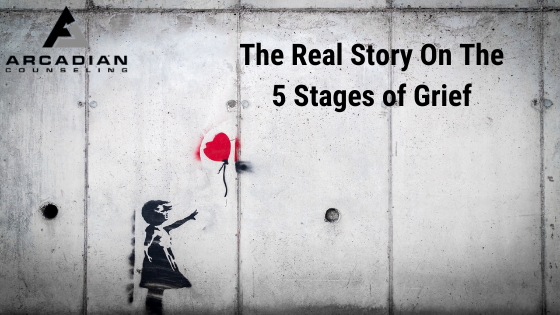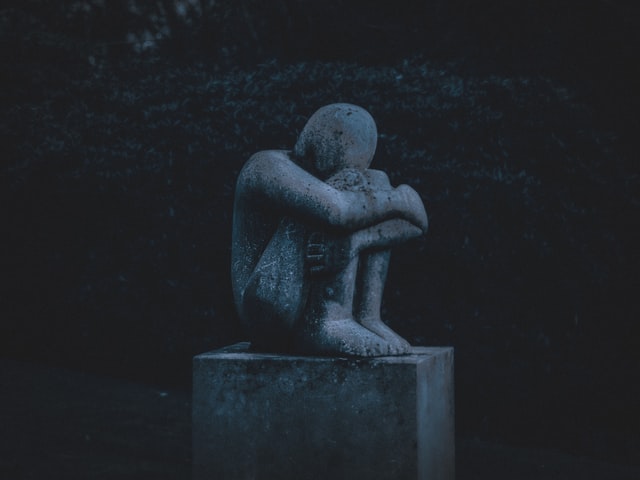Denial, anger, bargaining, depression, and acceptance: these are the very well-known 5 stages of grief as suggested by Swiss psychiatrist Elisabeth Kubler-Ross in her 1969 book On Death and Dying.
At the time of the book’s publication, very little instruction was given in medical school on the subject of death and dying. It’s hard to believe that medical schools then (and few today) offer training on guidance for how to deal with something every single person on the face of the earth will deal with at some point in their life: grief.
This is precisely what motivated Kubler-Ross to share her findings in her work with terminally ill patients.
The story behind the 5 stages of grief
Since the publication of On Death and Dying, the 5 stages of grief have become so well-know that it’s now engrained in pop culture. Despite its popularity, some people may be surprised to know that Kubler-Ross didn’t create the 5 stages of grief to indicate a linear progression of grief – or for people who were grieving the loss of another. She created them to describe the process of the patients she observed.

The 5 stages of grief were actually created to describe the process of terminally ill patients coming to terms with their own death.
Many people mistakenly think the 5 stages of grief are about grieving the loss of someone else. In fact, they were originally created for terminally ill patients.
Before her death in 2004, Kubler-Ross noted in her book On Grief and Grieving, that the stages of grief were not meant to be a linear and predictable progression of grief, and that she regretted that the stages of grief had been misinterpreted.
Coinciding with Kubler-Ross’ own remarks on the 5 stages of grief, there appears to be no evidence that people go through any or all of these stages, or in any particular order. As unique as is each individual and their relationships, so too is their experience with the grieving process.
Since mourning the loss of a loved one can be such a devastating experience, many who grieve look for guidance, or a checklist of sorts. They wish for a time to look forward to when the debilitating sadness and painful emotions will finally cease.
Unfortunately, there seems to be no definitive “end” to the grieving process; much like our own personal growth, we’re never really “done” with grieving.
As we move forward with life (which doesn’t stop for our grief) and the experience of mourning a loved one, we slowly begin to find a “new normal.” We begin to find a new way to be in the world without the person (or thing) in our life.
Although grief has no particular stage, timeline or ending, it doesn’t mean we will grieve in the same way forever. The people that we love and lose are forever embedded in our hearts and minds.
Assuming there is a healthy exploration and processing of our grieving emotions, over time, the overwhelming sorrow of grief morphs into a sort of bittersweet gratitude. We’re still sad that we lost someone we loved, but happy and grateful for the time we had in our life with them.
Life is short. Sometimes grieving isn’t. If you’re struggling to cope with grief, find an awesome therapist you like and trust to help you navigate your way to a new normal.
James Killian, LPC is the Principal Therapist & Owner of Arcadian Counseling in New Haven, CT where they specialize in helping over-thinkers, high achievers, and perfectionists reduce stress, increase fulfillment and enhance performance so they can move From Surviving To Thriving.


